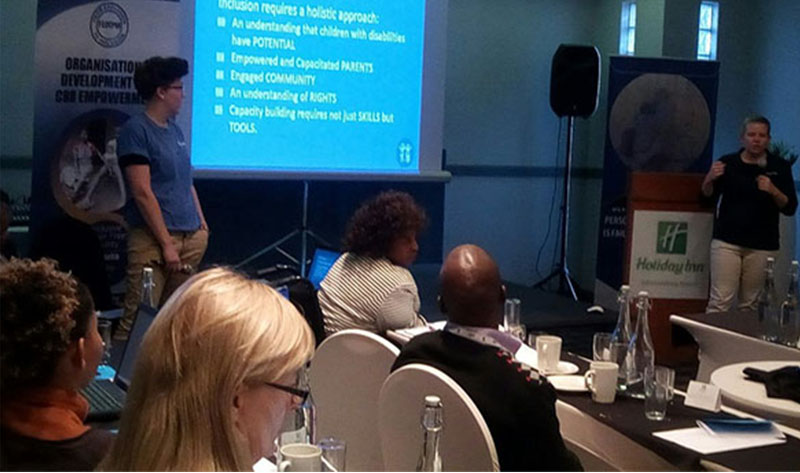|

Using experiences from Ndinogona Inclusive Early Childhood Development Stimulation Program and Promoting Inclusion in ECDE within the CBR programs project, the conference discussed modalities of ensuring children with disabilities have access to quality education. Representatives of UHAMBO, an organization working in Southern Africa to promote the inclusion of children with disabilities ignited a debate on the need to change the mindset in order to achieve inclusive education.
UHAMBO, for instance, had surveyed 21000 households; provided 70,000 assistive devices; trained therapists and caregivers in all the 9 South African provinces as well as in Namibia and Botswana. UHAMBO also played an important role in advocacy and policy development on disability rights and green paper on inclusive education in South Africa; participated in the development of the World Health Organization (WHO) Guidelines; pioneered the design and provision of a manual on wheelchairs in less-resourced communities.
Participants thus noted that inclusion was not simple or linear. It required a holistic approach; understanding that children with disabilities have potential, empowering and capacitating parents; and engaging communities so that they have a clear understanding of rights. Capacity building was not just about the provision of skills but tools – hence the need for creating a mind shift to change the expectations and acknowledging that every child has potential.
Ms. Patience Kanguma of the Zambian Federation of Disability Organization (ZAFOD), like UHAMBO observed that inclusive education required everyone’s participation. In this respect, the Promoting Inclusion in ECDE with CBR programs project in Zambia, Angola, Lesotho, and Mozambique, used multi-disciplinary teams (teachers, nurses, social welfare officers) to identify children with disabilities before they could be enrolled in school. And that early identification and interventions within CBR programs promoted child development and socialization. The involvement of parents of children with disabilities, as well as DPOs, was further noted as key to the success of ECDE.
However, there was a need for intensified awareness among community members, traditional leaders, and other stakeholders regarding the early identification of children with disabilities. There was also a need to engage the government and donor community on CBR and inclusive education.